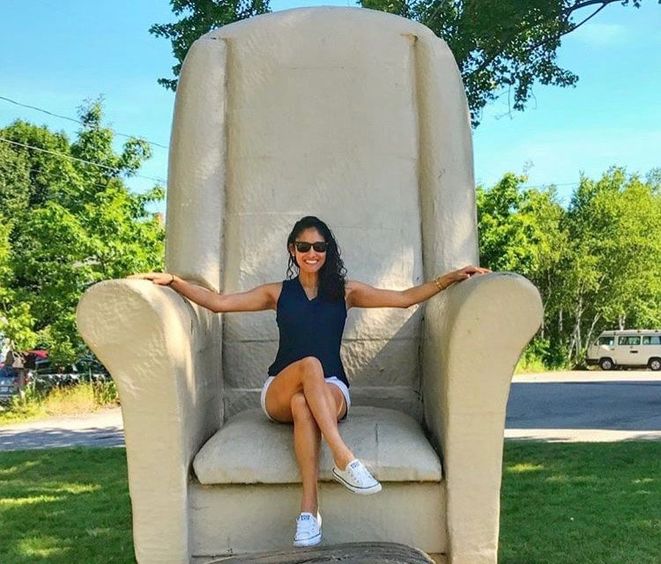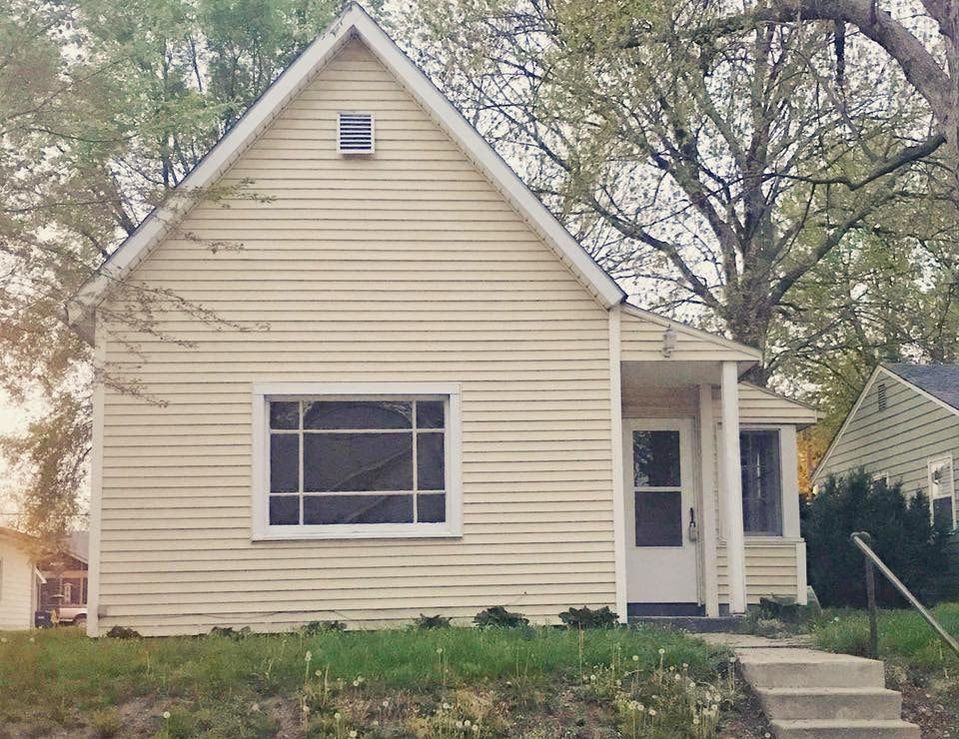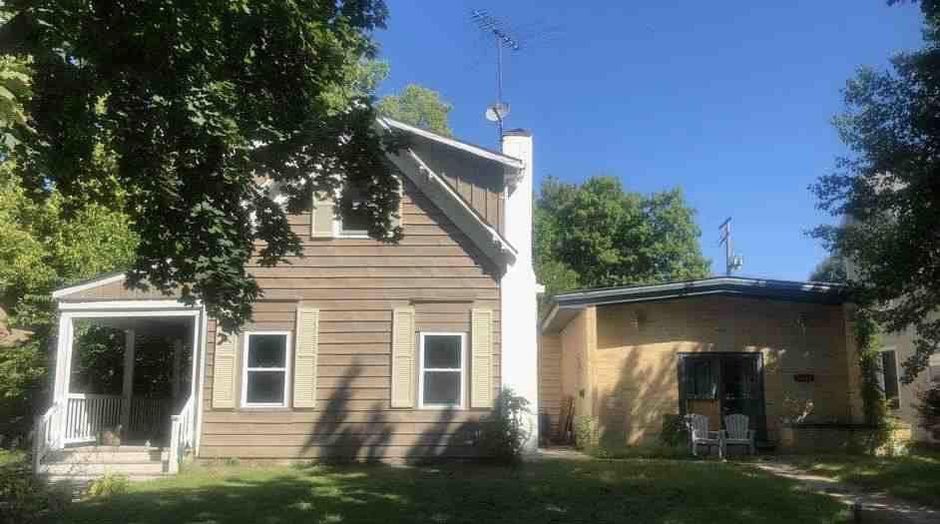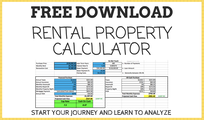|
What's up Jump In Nation! We've got another #JumpIn Stories interview, where we profile individuals who have taken the leap and jumped into real estate investing. These investors have taken action (arguably the toughest part), and are doing everything they can to create a life of financial independence. Introducing, Sunitha. A quick history about Sunitha and myself: we've never met in person. This is definitely a theme in my life (haha!) as I connect with dozens of people online through various real estate groups and networks. She's got a crazy cool story: dropping out of school in the 6th grade to pursue a tennis career, now finishing up her MBA at VIllanova, and investing in long-distance real estate. Read her story below! Sunitha, tell us a little about yourself. I live just outside of Boston and work in finance at a biopharmaceutical company in the city. I haven’t always been in New England – I grew up in Florida and in the last 12 years or so, I have lived in several different locations along the east coast and in several different countries. When I’m not working at my job or working on developing my real estate portfolio, I am usually studying – I have about six months until I graduate Villanova’s MBA program and that day cannot come soon enough! Although I am typically glued to a desk or a computer these days, that wasn’t always the case; I spent about nine years playing tennis professionally – hence, all of the moving around. I still love travelling, being active and exploring anything that is new, although my grueling schedule restricts my ability to do so…for now!! Where do you invest? The investments that I currently hold are just north of Indianapolis, about 40 minutes from downtown. At this juncture of my investment journey, I prefer the suburbs just outside of the city. Some of these suburbs are less “block-by-block” than within the Indianapolis city limits, meaning that neighborhoods typically have less potential to change when going from one street to the next. Indianapolis, like many cities, has areas that are fantastic on one street and far less desirable areas on the next street. As I haven’t seen a single property in person prior to purchasing, investing in the suburbs helps me feel more confident in the location of my investment. Why did you jump into real estate? Real estate is just my vehicle of choice on the road to financial freedom. During my years as a professional athlete, I never knew how much money I was going to make from one week to the next – my take home pay was always directly related to whether I would win my next match. Since I was self-funded, this dynamic was extremely stressful. There were times when I was on the road and in a different country, when I didn’t know if I would have the money to get home or have enough money to buy food for my entire trip. After I retired, I desperately needed stability, so I went back to school - I had dropped out after sixth grade in order to train full time and had a GED but no formal education after dropping out - got a degree and a job. It was great at first - I relished in knowing that I would receive money in my bank account, like clockwork. However, as I got to know my coworkers, I started to realize that sole dependency on my W-2 income might not be the best path. So many of my colleagues expressed dissatisfaction in their current situations for a variety of reasons, but felt unable to change their circumstances due to financial obligations: mortgages, children, dependent family members, and the like. If not for the financial burdens of these commitments, many of these individuals would have the freedom to select the career path and/or lifestyle that would optimize fulfillment. Luckily, I am still at a stage in life where I can influence my financial obligations to a larger extent and have decided that I wanted to position myself more optimally so that I can afford more choices in the future. Lastly, real estate is my vehicle of choice due to the fact that rents consistently rise over time, whereas the mortgage payment essentially stays fixed until the property is paid off. Therefore, over time, properties that are a good investment and profitable at the time of purchase only grow more profitable over time. Additionally, it is possible to influence the profitability of a properly, and as a result, the cash coming into your bank account. While stocks and index funds are also great options and important for a diversified portfolio, I prefer to invest more heavily in investments that I can influence to a greater degree. What's your investing strategy? I am focused on long term rentals that are undervalued, typically due to the fact that the property is physically distressed. This allows me to purchase the property at a lower price, hire out contractors to fix it up and then rent it to tenants. Completing all of this from a different part of the country can certainly be stressful and challenging, which is why it is important to have teams that you trust on the ground – they can recommend honest and reliable people to work with, whether those are general contractors, electricians, HVAC technicians, exterminators, and the like. I have also found them to be very helpful when verifying that work was completed and that I can release funds for the contractors work. Even utilizing before and after photos of the work can be misleading, so it is crucial to vet team members carefully. Why do you invest outside of your local market? I invest outside of Boston because Boston is one of the least affordable cities in the country - it consistently ranks within the top ten of most expensive cities to live in the US. I toyed with the idea of buying a property within an hour or two of the city, where price points become more affordable. However, depending on the time of day, spending an hour in the car will only get you five miles outside of the city. If I wanted to self-manage in order to minimize costs and needed to visit the property for any reason, getting out of the city could prove stressful, especially considering that I already had a full time job that doesn’t grant the flexibility of travelling to locations an hour away during off peak commuting hours. The more I thought about it, the more self managing under these circumstances sounded like another full time job and I wasn’t interested in investing in real estate just to gain another job. The only option would be to get a property manager. If I were to incur these costs, I might as well invest in a location that would be less expensive and provide higher cash returns! While that was the general thought process, I also took a more data/finance based approach to confirm that I didn’t want to be investing in the Boston market and that investing elsewhere would help me reach my goals more efficiently. A few of the things that I looked at were: 1. Price to rent ratios: In the Midwest, I can find properties off the MLS (Multiple Listing Service, where real estate agent list properties that they are selling) that will command gross monthly rents of 1%+ of the asking price and are located in good areas. That’s a starting point, because if it’s close to 1%, then I know that there is a chance of the property being profitable after mortgage expenses, property management, repairs, etc. Contrastingly, in Boston, there is NO WAY I will able to find a single family home or a duplex located well and commanding 1% of rents. 2. Economic fundamentals: I prefer markets with strong economic tendencies that are better than the national average. A few of the economic statistics I look at include population growth, job growth and industry diversity. 3. Competition: While the places I've looked into/am focusing on now demonstrate strong economic trends and are very competitive, I'm not looking in places that are heavy in foreign investor activity. There was a lot of foreign investor activity in Boston when I was trying to get started in real estate. As a result, I was seeing these investors come in, pay cash at asking or above and waive inspections and contingencies, just to get into desirable locations. These are not conditions where I could continually compete successfully, or even get into the market anytime soon, given the property values and cash requirements, so I needed to find a market with more accessible conditions. 4. Diversification: Essentially, $600k goes A LOT farther in different parts of the country. It might get me a duplex in an average area, a few miles outside of Boston or it could get me 7+ houses or an apartment building in the Midwest. Being able to buy more units in good areas for the same prices ensures that my risk can be further spread out across multiple units and/or multiple properties. One eviction or structural issue won’t hurt as much if I have other units bringing in positive cash flow. What's the first step you took to invest in long-distance real estate? The first step in my journey – which I strongly believe should be the first step in everyone’s journey – was to educate myself. Buying an income property, whether it is in your back yard or in another state, is a huge purchase that should not be taken lightly. There are many factors influencing whether a property will be a successful investment. It is important to understand these factors and how they can potentially influence the property’s performance. I spent more than a year learning about different markets, how to evaluate properties, what to look for in those who would be my “boots on the ground,” and the nuances of different investment strategies before I settled on a market and a strategy that would work for me. Even when I finally was able to find a property that met my needs, there was still so much that I didn’t know, but spending the time preparing and learning on the front end really helped to remove some of the risk in the investment. What's been your worst moment as a real estate investor? Buying a house in a flood plain! Dependent upon where on the flood plain a house is located, the house will require a flood insurance policy while it is under a mortgage. The cost of flood insurance can run up to $3,000 a year, so it can really wipe out the cash flow on a property. I typically avoid properties in flood plains like the plague, but was misinformed this time around and didn’t realize that I could check the location of a property relative to a flood plain. The property was purchased significantly under market and in a great location – flood plain not withstanding - so it’s not going to make or break my real estate ventures. It will require that I be flexible with my strategy and how I optimize this property, relative to my goals and the rest of my portfolio. What's your greatest takeaway from that moment? Extreme ownership is a principal that is referred to in a book of the same name. The book is written by two Navy Seals and at the heart of this principle is the fact that when things wrong, it is easy to point fingers and blame people. However, this tactic doesn’t help, as the mistakes have already been made and, as the investor, you are the only person responsible and bearing the full consequences of the success or failure of the property. As a result, the only thing to do at that moment is to fully accept the responsibility for the situation, learn how to mitigate the risk of making that error again, and develop a plan to win from that position. At this point, after all of the I’s have been dotted and all of the T’s have been crossed, I am the one who owns a property and I should’ve found a way to confirm the information I had been provided. This led me to two takeaways: 1. If an important question has been answered, ask for the assumptions or information that supports that answer – I could’ve asked where the assumption regarding the home being outside of the flood plain came from, or for an image of the location of the home on a flood plain map. Sometimes, especially as a newbie, it can seem tough or overly demanding to make these additional requests. However, the investor is the one holding the property and assuming all the risks associated with it at the end of the day. If your team doesn’t understand this and put in the extra effort to help you understand and mitigate those risks, then it’s time to find a new team who will help you reach your goals. 2. Have an exit strategy. I like to know that if things don’t pan out as expected, I can still sell the house profitably if needed. This has saved me a lot of stress and worry over the house in the flood plain, as I know that I can make a decent profit should I decide that releasing the property would be the best decision for the business. How has real estate changed your life? I’m still in the early stages of this journey so I wouldn’t say the impact has been substantial enough to change my life, but it has been rewarding to see the profits rolling in each month. While it takes a lot of front end work to evaluate the market, find the deals, complete the rehabs, etc etc, the level of effort to earn the profits declines once the property is stabilized. Much of the time, I don’t put in more than a few hours of work each month to earn these profits. Seeing how well this business model works is really refreshing and it is exciting to thinking about the freedom that I can eventually gain once I am able to operate this business on a larger scale. If you could learn any real estate related skill right now, what would it be? There are so many that it is hard to choose just one! At this point, I think I would prefer to have the ability to eyeball rehab cost estimates. Rehabs going over cost can destroy the profitability for a property and organizing for a contractor visit to provide bids before closing on the property can be challenging…being able to assess the cost of fixes on my own would save a lot of headaches! If you had an extra $100,000 cash right now, what would you do? Buy more houses!! What's the best book you've read recently? Why? I really love Tribe of Mentors. It allows access into the minds of the successful, across a multitude of professions and industries. As the reader makes their way through the book, it is possible to pick out themes and commonalities in the actions taken to be successful. What's your end goal? Financial Freedom! I have a net income goal for my portfolio and once I reach that goal, it will be time to reassess my life. There are certainly things that I will be incorporating into my life once I hit that dollar figure, such as dedicated time to non-profit work. However, the end goal is to have the freedom to assess my life at that time and do what I WANT to do at that point, and release what I NEED to do in order to meet my financial obligations. What's your greatest piece of real estate advice? Be a good person. Success in this in arena is heavily influenced by relationships. In order to make the best decisions possible, especially as a newcomer, the insight of others can help you make more money or save you from costly mistakes to the tune of thousands of dollars. There’s the opportunity to make a lot of money in this area, which influences many to cut corners or to not repay the help others have given them. That approach is very short sighted – looking to add value to those who have lent a hand or paying to forward to help others is invaluable to any investors career, in terms of dollars and fulfilling long term relationships. And there you have it folks! Check out these key takeaways that I just picked up:
THANK YOU Suni for sharing your story and taking time to connect with Jump In Real Estate and the community. Best of luck, happy investing, and can't wait to see how your journey progresses! -Tyler
1 Comment
|
Investing |
Jump In |




